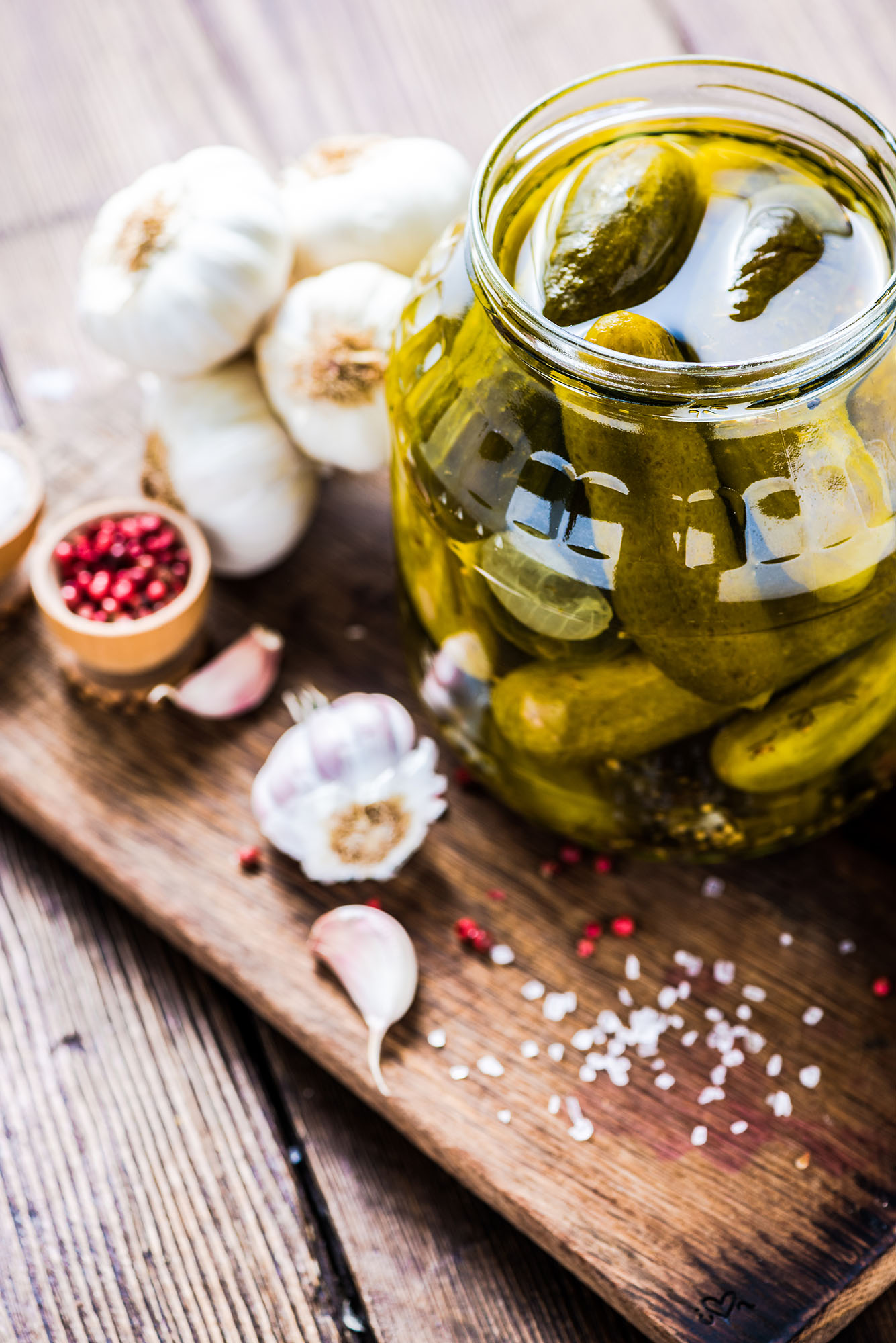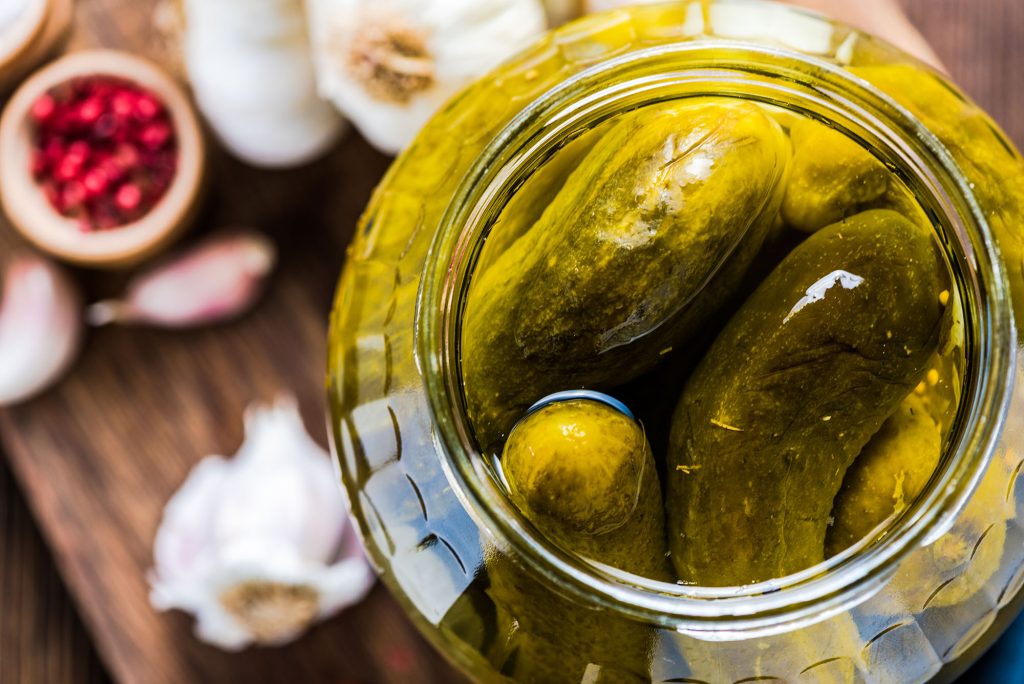Recipe by Dr Sarah Lantz
Makes a 2-litre jar
The rush of saliva, the puckering of lips, and the satisfying crunch. It was these tasty, sour little green fellas that initially got me into fermenting, pickling and generally homegrown healing. As a child, pickles were a mainstay at our family dinner table, a meal not complete without one. There versatility is endless; burgers, fried egg sandwiches, tuna sandwiches, salads, as a side for salmon and sausages, and the brine makes for a wonderful zingy Bloody Mary and martini, or straight up from the jar in refrigerator is completely acceptable too. Dill pickles are also undoubtedly a typical craving culprit for pregnant women, myself included.
It’s this time of the year where cucumbers are at their peak and where you can to grab a whole bunch and watch the microbes miraculously transform them into pickles, creating whole new flavours and textures. When winter arrives soon enough and you have no more fresh cucumbers, you’ll be glad you made these killer dill pickles now.
As for the health benefits, naturally lacto-fermented sour pickles are rich in beneficial bacteria and food enzymes, offering a rich source of probiotics. Just as unrefined sea salt is used to prepare a traditional sauerkraut, unrefined sea salt is likewise used to prepare traditional sour pickles, alongside some vinegar of choice. Yet, while many traditionally fermented vegetables require pounding vegetables long enough for them to release their juices, which then combine with unrefined sea salt to create a brine, to make sour pickles you prepare the brine separately and pour it over the cucumbers and seasonings. This brine helps to keep pathogenic bacteria at bay while encouraging the growth of beneficial bacteria, which metabolise the vegetable’s natural sugars and produce lactic and acetic acids as a by-product.
I like to season my pickles heavily with garlic and dill while alternating between subtle pickling spice flavours and dried hot peppers from batch to batch. The benefit of using garlic in your sour pickle recipe is that not only do you finish the ferment with true, delicious salty and sour pickles, you also get to enjoy pickled garlic with all of its flavour. And remember, it’s not an exact science to make pickles. Vary the recipe with whatever herbs, spices and levels of garlic you love. Tarragon pickles are wonderful. A hint of chili goes great too.

Ingredients
Small pickling cucumbers (enough to fill the jar) or any cucumbers of different shapes and sizes (large ones will need cutting to size)
Fresh dill “ enough to cover the bottom of your jar
6 cloves garlic
2 tablespoons mustard seeds (yellow, black or a combination)
½ cup sauerkraut juice/mother of vinegar/kombucha vinegar
1 tablespoon black peppercorns
1 teaspoon dried turmeric
2 tablespoons sea salt
Quality Water
1 tablespoon sugar (or sweetener of your choice) (optional)
Method
Using a 2-litre glass jar, place dill and garlic on the bottom.
Cut the blossom end off each cucumber if they are large or leave whole if they are small enough.
Place them in the jar. Pour the sauerkraut/vinegar juice into the jar along with some mustard seeds, peppercorns and turmeric. Make sure it looks pretty in the jar.
Mix sea salt into water and dissolve. Pour this brine into the jar and make sure liquid covers the pickles. It is important that the pickles stay under the brine so they don’t grow mould. You could use a weight if your cucumbers aren’t staying below the brine.
Screw the lid onto the jar, or use an airlock lid, and place the jar in an area away from direct sunlight, but make sure it is in a warm spot.
You can tell if your pickles are fermenting when you see bubbles around the top of the surface of the brine. When you have reached you desired crunchiness, tartness and flavour, around five days to a week, place the jar in the fridge. The cucumbers should have turned from a bright green to a nice olive green. The pickles should smell good. They should taste crunchy. If you think they need more fermenting, leave them out for a few more days. Refrigerating the pickles will slow the fermentation process.
When kept in the fridge, pickles have a very long shelf life “ years and years in fact. This recipe is based on a summer climate. Fermenting times will vary based on the season and climate, and generally take longer the colder it is.
Article by:
Dr Sarah Lantz (PhD)
Buchi Brew Co. & Sacred Women’s Way

